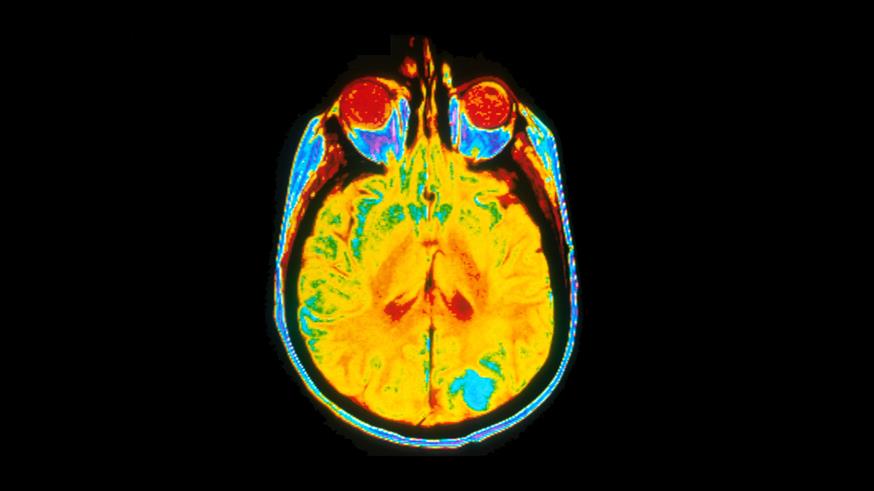
Brain tumour research in the UK is set to be revolutionised with £45 million in funding by the Department of Health and Social Care and Cancer Research UK. The Institute of Cancer Research, London, will benefit from some of this new funding.
In a bid to deliver a “step change” in survival rates, the Health and Social Care Secretary Jeremy Hunt has announced that an estimated £20 million in funding will be invested through the National Institute for Health Research (NIHR) over the next five years – with the aim of doubling this once new high-quality research proposals become available.
The funding boost will be kick-started by a formal call to the research community known as a highlight notice, which will encourage teams to put forward new research proposals to access NIHR funding in April.
Boosting research into brain tumours
Today also marks a significant moment in Cancer Research UK’s ongoing commitment to boosting research into brain tumours – with an investment of an extra £25 million over the next five years. This is in addition to the £13 million spent each year on research and development of new treatments for the disease.
Cancer Research UK’s funding will support two new specialised centres. The Children’s Brain Tumour Centre of Excellence, based at the University of Cambridge and The Institute of Cancer Research, London, opening today – that brings together world-leading experts to discover and develop new treatments to tackle brain tumours in children. A second centre focusing on adult brain tumours will open later in the year.
Professor Richard Gilbertson, director of the Cancer Research UK Children’s Brain Tumour Centre of Excellence at Cambridge University and the ICR, said:
“By creating a hub of expertise for childhood brain tumour research in the UK, we aim to make real inroads to tackling these diseases. Gathering this expertise together means we can shine a light on the numerous challenges and difficulties that brain tumours pose and discover new treatments to ensure that more children survive their disease.”
Supporting our Childhood Cancer appeal will help us develop new treatments for children with aggressive and hard to treat cancers.
Read more
Collaboration vital in childhood brain cancer research
Professor Chris Jones, Professor of Childhood Brain Tumour Biology at the ICR, said:
“Collaboration is vital in childhood brain cancer research and we’re excited to be able to work in close partnership with our colleagues at Cambridge.
“At the ICR, we’ve made great strides in our understanding of the biology of the different types of childhood brain tumour and, working together, we hope to translate those discoveries into the new treatments that children so urgently need as quickly as possible.”
Cancer Research UK will also be launching a number of new initiatives over the coming months to build new international collaborations. These will support research to transform the understanding of how and why brain tumours develop, to develop new ways diagnose the disease and trials to test new personalised treatments.
Today’s Government funding announcement follows the publication of the report of the Task and Finish Working Group, led by the Government’s Chief Scientific Adviser Professor Chris Witty. Other actions include:
- A plan to improve the approach to trialling new treatments, including making better use of adaptive trials that enable patients to receive different treatments concurrently.
- The development of a new cadre of clinical-oncologists to ensure the NHS can draw on world class expertise in treating brain cancer.
- A commitment to treble the number of cancer patients whose whole genome is sequenced as part of their diagnosis over the next four years through the 100,000 Genomes Project.
- Improvements in how brain tumour tissue is collected and shared across the research community.
- A commitment from NHS England to work with Cancer Alliances and brain cancer surgery centres to understand the barriers to using 5 ALA – a special fluorescent dye that helps surgeons identify and remove more malignant brain tissue during operations.
Health and Social Care Secretary Jeremy Hunt said:
“While survival rates for most cancers are at record levels, the prognosis for people with brain tumours has scarcely improved in over a generation. I am grateful to Baroness Jowell and other MPs who have campaigned with great dignity and courage to raise awareness of this issue.
“Our ambition is to deliver a big uplift in the funding of brain cancer research, while galvanising the clinical and scientific communities to explore new avenues for diagnosis and treatment in the future – it is a chance to create a genuine, step change in survival rates for one of the deadliest forms of cancer.”
Accelerating efforts further
Sir Harpal Kumar, Cancer Research UK’s chief executive, said:
“Brain tumours remain a huge challenge, with survival barely improving over the last 30 years. Since we laid out our plans to tackle this challenge in 2014, Cancer Research UK has already substantially increased its funding into brain tumours and attracted some of the world’s leading experts to the UK.
“This new funding will mean that we can accelerate these efforts further, by developing a critical mass of expertise in key areas and supporting work along the entire research pipeline to improve survival for children and adults with brain tumours.”
Each year around 11,400 people in the UK are diagnosed with a brain tumour and just 14% of people survive their disease for 10 or more years.
Later today the Secretary of State for Health and Social Care Jeremy Hunt and Baroness Tessa Jowell will chair a roundtable with key brain cancer charities, leading academics and pharmaceutical companies to discuss how to improve brain cancer diagnosis and treatment.